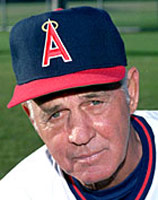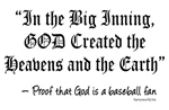
Mauch was known as an over manager. During his time in Philadelphia, Minnesota, Montreal and California, he was a big proponent of "small ball", which included the hit and run and sacrifice bunt. Later on, he used the stolen base for the better part of the 1970s and 1980s. He also changed relief pitcher frequently and made a lot of defensive substitutions during the course of the game. While there are many critics of that type of managing, all the teams he managed got better during his tenure. When he took over the Phillies, his 1961 team lost 107 games. Afterwards, the Phillies finished over .500 every season until his firing in 1967. (At the time, the Phillies were 28-27.)
He became the first manager in the history of the Montreal Expos in 1969. After losing 110 games in the team's first season, he got the team into a serious pennant race in 1973. The New York Mets won the division with a 82-79 record but the Expos had a breakout season before fading down the stretch. The team's performance got him the ML Manager of the Year Award.
After he left Montreal, he led the Minnesota Twins to winning seasons in 3 of his first 4 seasons. The Twins were in an unexpected battle with the Kansas City Royals in the 1977 AL West division. Much was made about the fact that the team performed much better than what was thought to exist on paper.
He took over the California Angels during the 1981 season, marking the 22nd straight year Mauch was managing an MLB team. He got the Angels into the postseason the next season, marking the first time he led a team to the postseason. However, after losing the before mentioned series to the Brewers, he was fired by owner Gene Autry, despite leading the team to 93 wins in his first full season with the Angels. Autry brought him back for the 1985 season and Mauch had the Angels back in the postseason by winning the AL West division in 1986. After a down season in 1987, Mauch quit managing due to health reasons and never returned to the bench, despite spending several seasons in the Angels front office. The team struggled in 1983 and 1984 and it would be until 2002 when the Angels made it back to the postseason, as they won their first World Series Championship that season.
Mauch should not be judged on the fact that he never made it to a World Series. It certainly would have made his record seem better than it was, but it is not the sole determining factor. He helped improve the Phillies over his time there. They were a horrible team before he took over and were bad for a while after he was fired. But he managed them to a winning season every year he was there from 1962-1967. The Expos almost gained respectability under Mauch and his dealings there remained on the organization going forward. His Twins teams seemed to overachieve until the 1980 team fell apart. And until Mike Scioscia, he was the best manager in the history of the Angels franchise.
He finished his career with a losing record, though that had to do mostly with the early years of the Expos. He did make his teams better. The fact that the Expos and Twins lacked a lot of talent allowed his to use his in game ideas to get them to overachieve. 1902-2037 does not sound dominant, but Mauch's managerial skills are duplicated in the game today. When he managed, not many used as many pitching changes. He pinch hit a lot as well as pushed the envelope with aggressive base running. Several managers in the game learned what they know from Mauch. He deserves to be credited for his place in baseball history.

 RSS Feed
RSS Feed
